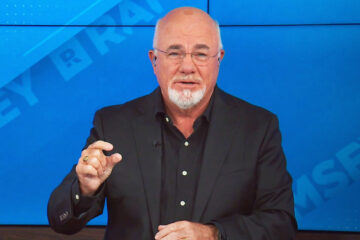The July employment report came in weaker than expected Friday, with nonfarm payrolls rising only 114,000 and the unemployment rate climbing to 4.3%.
That has sparked debate about the health of the economy. Some see the numbers showing a hard landing — a substantial slowing — for the economy is possible.
Doug Kass, one of the country’s most renowned investors, predicted July’s stock market sell-off.
“The latest snapshot of the labor market is consistent with a slowdown, not necessarily a recession,” said Jeffrey Roach, chief economist for LPL Financial. “However, early warning signs suggest further weakness.”
Still, others say the data aren’t so weak: Both the payroll and unemployment statistics point to a solid economy. And they note that while average hourly earnings rose less in July than June, they were still up 3.6% from a year earlier.
“One negative miss shouldn’t lead to overreaction,” said Lara Castleton, U.S. head of portfolio construction and strategy at Janus Henderson Investors. “GDP is still strong, average hourly earnings are rising, and inflation is coming down.”
GDP totaled 2.8% annualized in the second quarter.
Related: Another dot-com bubble? Analyst offers unexpected view on AI stock boom
And inflation, as measured by the personal consumption expenditures price index, a benchmark favored by the Federal Reserve, registered 2.5% in June. That still exceeds the Fed’s target of 2%.
Fed rate cut seen coming
In any case, there is widespread agreement that the central bank will cut interest rates at its next meeting Sept. 17-18. That would be the first reduction since it finished its rate-hike campaign in July 2023.
Given the Fed’s lingering concern with inflation, it looks likely to cut rates by only 0.25 percentage point in September. But markets tend to overreact. So it’s no wonder that interest-rate futures point to a 78.5% probability of a half-point cut.
The central bank’s Federal Funds Rate target now stands at 5.25%-5.5%. That’s the rate banks charge each other for loans. Banks borrow from other banks to keep their capital levels stable.
Related: Jobs report cements case for bigger Fed interest rate cut
On Friday, stocks slid by 2.4% due to the sluggish jobs data. Equities have lost 6.2% since hitting a record July 16.
Some experts say rate cuts will boost both the economy and stocks. But the renowned investor Doug Kass, author of TheStreet Pro’s Daily Diary, begs to differ.
On July 2, Kass said the market is “flying too close to the sun.” He said that higher than normal bond yields relative to stock yields, a Fed reluctant to cut as much as many think, and a market fueled by a handful of big winners made stocks risky.
The S&P 500 and Nasdaq peaked in mid-July. Since then, the indexes have been down 5.7% and 10%, respectively.
His views matter. Kass’s career as a hedge fund manager extends to the 1970s, including a stint as director of research at the legendary investor Leon Cooperman’s Omega Advisors.
TheStreet Pro’s Kass: Impact of rate cuts
Kass said that, regarding the impact of potential rate cuts, “the U.S. economy is far less interest-rate sensitive than previously assumed.”
“It took the Fed undertaking the most rapid rate increase in decades to slowly dull domestic economic growth. It follows that it will likely take a rapid rate decline to stabilize/improve economic growth.”
While some say the Fed’s first rate reduction provides a good buying opportunity for stocks, history refutes that notion, Kass said.
Expert Stock Picks:
Fund manager at $15B firm picks auto stock as single best trade3 midcap growth stock ideas from a $225 million fund manager$1 billion fund manager reveals 3 midcap stock picks
“Buying stocks in October 2007, when the Fed first cut rates, was a poor idea, as it also was when the Fed cut rates in 2000,” he said.
Some experts say the Fed will be able to engineer a soft landing with buoyant economic growth, sliding inflation, and rising stock prices.
Think again, Kass says.
“Goldilocks is still a well-embedded narrative — reinforced by the economic cheerleading by Chair Jerome Powell and his feckless Fed at their meeting Wednesday,” Kass said. “But the bullish cabal is likely to be disappointed in the next six to 12 months.”
Related: Veteran fund manager sees world of pain coming for stocks


